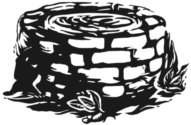The post-confessionalism of Louise Glück
Max Roland Ekstrom
*Originally Published in the April 2023 Newsletter*
In our poetry box series for March–April we’re reading *Meadowlands*, the 1996 collection from Louise Glück. It is packed with classical allusion, as she seeks to break out from Confessionalism, the paradigm of her immediate predecessors. In Confessionalism, personal attestation took priority over Modernism’s tendency toward third-person omniscience.
Examine the opening of Glück’s “Telemachus’ Confession,” one of several pieces examining the marriage of Odysseus and Penelope:
@poemexcerpt{
They
were not better off
when he left; ultimately
I was better off. This
amazed me, not because I was convinced
I needed them both but because
long into adulthood I retained
something of the child’s
hunger for ritual. [...]
}
Staccato phrasing at first conveys Telemachus reflecting on his childhood as if it were not literature, but lived experience. Glück offers us a monologue off the therapist’s couch, with expository phrases like “ultimately / better off” and “long into adulthood I retained,” leading up to the strange, princely wisdom of “the child’s / hunger for ritual”—meaning, we infer, the patterns of domestic stability that he was denied. And like the prince of Denmark, this instability leads to a tone of brooding:
@poemexcerpt{
I realized I was
actually a person; I had
my own voice, my own perceptions, though
I came to them late. I no longer regret
the terrible moment in the fields,
the ploy that took
my father away. [...]
}
#@callout The poem inverts the confessional formula she inherited from mentors and influences, like Robert Lowell and Sylvia Plath.
The reader waits 27 lines before Glück introduces her first and only image, “the terrible moment in the fields.” Until then, the text holds aloof, drifting in the margin of epic. Indeed, Telemachus knows, Pinocchio-like, he is not a real boy—he has “to fabricate the being / each required,” performing emotional labor for his parents.
Telemachus confronts his life as a literary device, a doll, a “ploy” in his makers’ gambits. But Glück also shows us how she feels about her own son, her own generativity. The poem inverts the confessional formula she inherited from mentors and influences, like Robert Lowell and Sylvia Plath. These poets frequently superimposed myth upon personal affairs, shocking readers with elevation of the salacious, daring to center poems around fugitive interiority. Here, Glück has the myth itself do the confessing, letting its story and theme complicate her own.
Throughout *Meadowlands*, her impending divorce is the raw material she seeks to shape to her advantage. But as she molds, she reveals what is lost by reducing people we love to texts. Through Telemachus, she implicates herself in Confessionalism’s limitations, chronicling the cost of her gift, while pointing a way forward.
